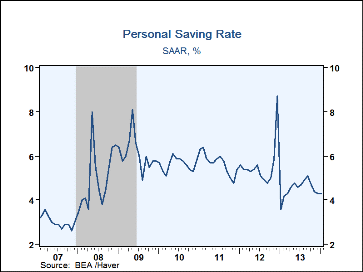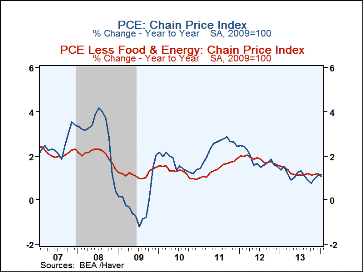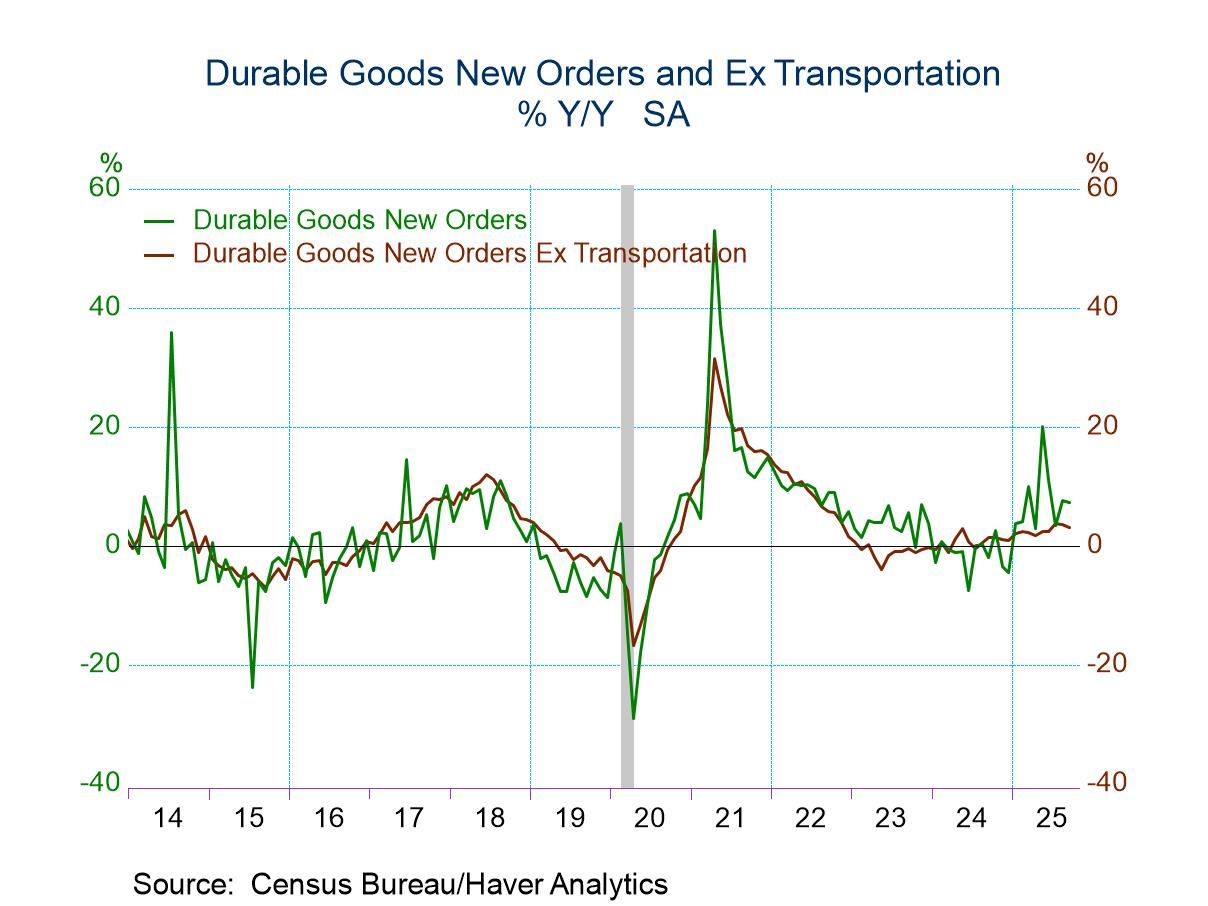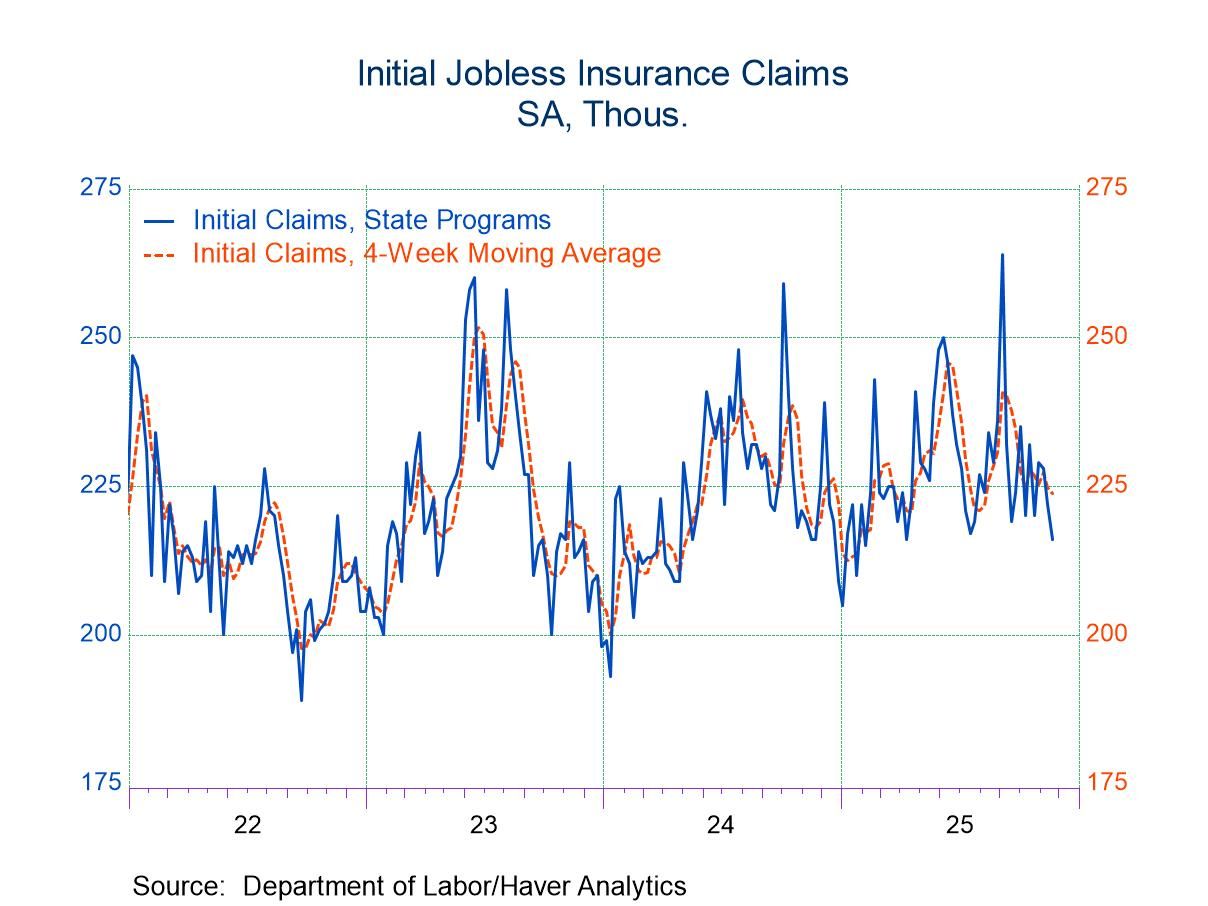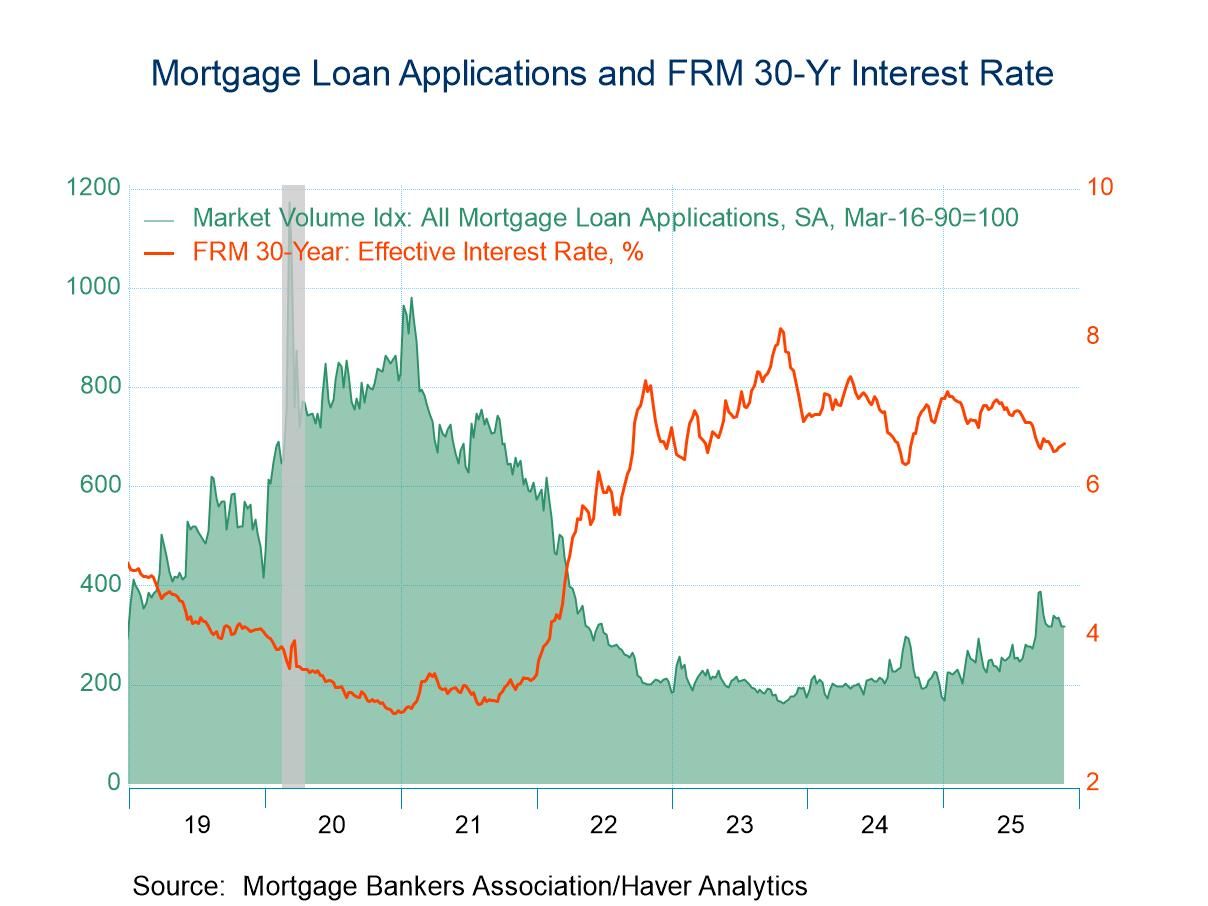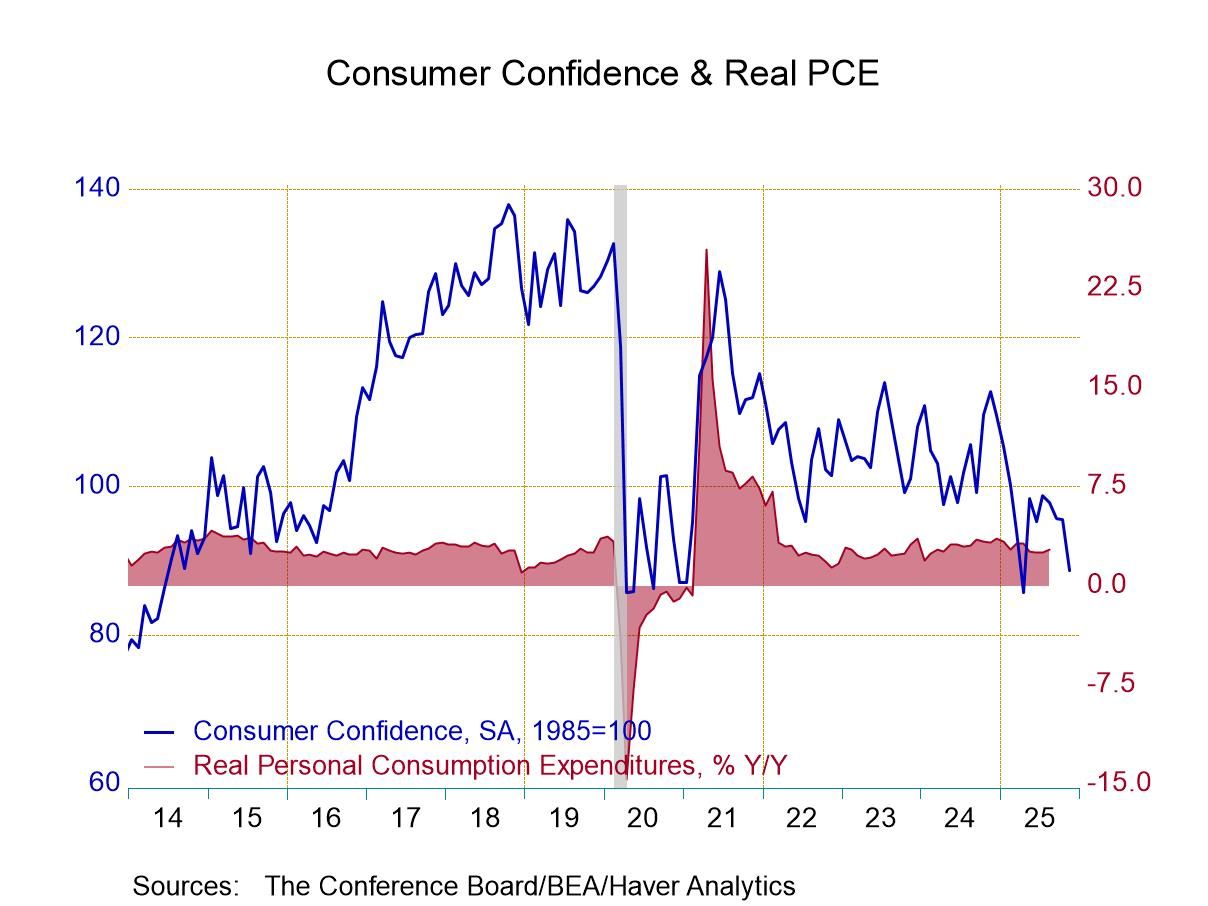 Global| Mar 03 2014
Global| Mar 03 2014U.S. Personal Income, Outlays & Savings Firm
by:Tom Moeller
|in:Economy in Brief
Summary
Personal income gained 0.3% during January (4.1% y/y) after little change in December. The gain beat expectations for a 0.2% rise in the Action Economics Forecast Survey. Disposable personal income increased 0.4% (4.0% y/y). Wages & [...]
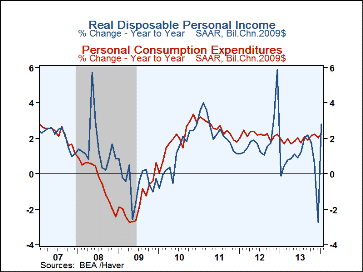 Personal income gained 0.3% during January (4.1% y/y) after little
change in December. The gain beat expectations for a 0.2% rise in the
Action Economics Forecast Survey. Disposable personal income increased
0.4% (4.0% y/y). Wages & salaries advanced 0.2% and the 3.6%
year-to-year increase was improved. To the upside, transfer receipts
jumped 1.2% (3.2% y/y), rental earnings rose 0.9% (7.9% y/y) and
proprietors income gained 0.3% (4.7% y/y). Working lower were dividend
income by 0.4% (+17.2% y/y) and interest income by 0.3% (+1.1 y/y).
Adjusted for price inflation disposable income recovered 0.3% (-2.8% y/y).
Personal income gained 0.3% during January (4.1% y/y) after little
change in December. The gain beat expectations for a 0.2% rise in the
Action Economics Forecast Survey. Disposable personal income increased
0.4% (4.0% y/y). Wages & salaries advanced 0.2% and the 3.6%
year-to-year increase was improved. To the upside, transfer receipts
jumped 1.2% (3.2% y/y), rental earnings rose 0.9% (7.9% y/y) and
proprietors income gained 0.3% (4.7% y/y). Working lower were dividend
income by 0.4% (+17.2% y/y) and interest income by 0.3% (+1.1 y/y).
Adjusted for price inflation disposable income recovered 0.3% (-2.8% y/y).
Personal consumption expenditures matched expectations and edged 0.1% higher (3.5% y/y) after a 0.1% December uptick. Late-2013 outlay levels were revised sharply lower. Motor vehicle purchases slipped 0.1% (-0.3% y/y) after a hefty 4.7% December drop while spending on furnishings & household equipment slipped 0.2% (+1.4% y/y). Clothing purchases were off 1.2% (+0.1% y/y). Gasoline expenditures plunged 3.3% (+2.9% y/y) due to lower prices & volumes. Services outlays jumped 0.9% (4.1% y/y) led by a 1.6% rise (4.7% y/y) in health care spending. Adjusted for inflation, PCE gained 0.3% (2.2% y/y).
The personal savings rate held steady at 4.3% but earlier figures were raised with the revised spending levels. Nevertheless, the savings rate remained close to its lowest since January 2008. The total amount of personal saving has been trending lower since 2009.
The PCE chain price index ticked up 0.1% (1.2% y/y) in January. The price index excluding food & energy also rose a steady 0.1% and 1.1% y/y, the slowest annual increase since early-2011. Durable goods prices slipped 0.1% (-2.2% y/y) while nondurable goods prices were unchanged (0.7% y/y). Prices for services gained 0.2% (1.9% y/y).
The personal income & consumption figures are available in Haver's USECON and USNA databases. The consensus expectation figure is in the AS1REPNA database.
| Personal Income & Outlays (%) | Jan | Dec | Nov | Y/Y | 2013 | 2012 | 2011 |
|---|---|---|---|---|---|---|---|
| Personal Income | 0.3 | -0.0 | 0.3 | 4.1 | 2.8 | 4.2 | 6.1 |
| Wages & Salaries | 0.2 | -0.1 | 0.6 | 3.6 | 3.1 | 4.3 | 4.1 |
| Disposable Personal Income | 0.4 | -0.1 | 0.2 | 4.0 | 1.9 | 3.9 | 4.8 |
| Personal Consumption Expenditures | 0.4 | 0.1 | 0.5 | 3.5 | 3.1 | 4.1 | 5.0 |
| Personal Saving Rate | 4.3 | 4.3 | 4.4 | 3.6 (Jan '13) |
4.5 | 5.6 | 5.7 |
| PCE Chain Price Index | 0.1 | 0.2 | 0.1 | 1.2 | 1.1 | 1.8 | 2.4 |
| Less Food & Energy | 0.1 | 0.1 | 0.1 | 1.1 | 1.2 | 1.8 | 1.4 |
| Real Disposable Income | 0.3 | -0.2 | 0.1 | 2.8 | 0.7 | 2.0 | 2.4 |
| Real Personal Consumption Expenditures | 0.3 | -0.1 | 0.4 | 2.2 | 2.0 | 2.2 | 2.5 |
Tom Moeller
AuthorMore in Author Profile »Prior to joining Haver Analytics in 2000, Mr. Moeller worked as the Economist at Chancellor Capital Management from 1985 to 1999. There, he developed comprehensive economic forecasts and interpreted economic data for equity and fixed income portfolio managers. Also at Chancellor, Mr. Moeller worked as an equity analyst and was responsible for researching and rating companies in the economically sensitive automobile and housing industries for investment in Chancellor’s equity portfolio. Prior to joining Chancellor, Mr. Moeller was an Economist at Citibank from 1979 to 1984. He also analyzed pricing behavior in the metals industry for the Council on Wage and Price Stability in Washington, D.C. In 1999, Mr. Moeller received the award for most accurate forecast from the Forecasters' Club of New York. From 1990 to 1992 he was President of the New York Association for Business Economists. Mr. Moeller earned an M.B.A. in Finance from Fordham University, where he graduated in 1987. He holds a Bachelor of Arts in Economics from George Washington University.


